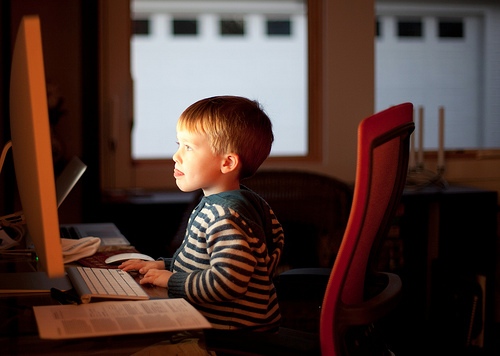What's the appropriate age to start logging onto social networking sites? According to the Terms of Service for Facebook, at least, the answer is 13.
But that doesn't stop thousands of younger children from signing up. According to Facebook's chief privacy adviser Mozelle Thompson, Facebook removes about 20,000 users a day who are underage.
That figure was revealed during testimony to the Australian parliament's cyber-safety committee, reports The Daily Telegraph. Australia is considering legislation that would require teens to get parental permission before joining Facebook.
As it stands, Facebook policy simply recommends that minors 13 or older get their parents' permission. Those younger than 13 are forbidden outright. But as Thompson testified: "There are people who lie. There are people who are under 13 [accessing Facebook]."


